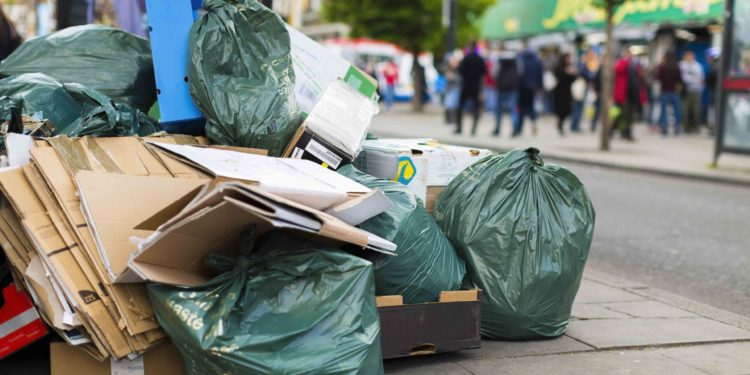Proper commercial waste management is essential for any UK business. You need a strategy to comply with regulations and reduce costs while saving the environment.
In this article, you’ll learn the steps to manage your commercial waste responsibly. Here are the steps to help you manage and dispose of commercial waste properly.
What is Commercial Waste, and Why It Matters?
Commercial waste is any rubbish generated from your business activities. This can include everything from office supplies to packaging materials and food waste. Knowing what constitutes commercial waste is essential because it affects how you handle and dispose of it.
Proper management of commercial waste can help your business comply with legal requirements. Why is the government strict in enforcing this rule? This is probably due to the fact that UK businesses produce over 27 million tons of commercial waste each year. This staggering amount highlights the importance of effective waste management practices.
If you manage your waste responsibly. You can reduce its negative effect on the environment whilst contributing to a more sustainable future.
Types of Commercial Waste
Different types of commercial waste require proper disposal. Here are the main categories.
- General Waste
General waste includes non-recyclable items such as food scraps, packaging materials, and broken furniture. This type of waste should be collected regularly and disposed of in accordance with local regulations.
- Recyclable Waste
Recyclable waste encompasses materials like paper, cardboard, glass, and certain plastics that can be processed and reused. Implement a recycling system in your business to help reduce the amount of waste sent to landfill.
- Hazardous Waste
Hazardous waste refers to materials that can pose a risk to one’s health or the environment, such as chemicals, batteries, and certain electronic items. Take special care when disposing of these materials to prevent harm.
- Electronic Waste
Electronic waste (e-waste) consists of discarded electronic devices like computers, phones, and printers. This type of waste often contains hazardous substances and requires specific disposal methods to ensure safety.
Legal Requirements for Commercial Waste Disposal in the UK
Legal requirements can be daunting for businesses. However, these regulations are crucial for compliance.
Duty of Care
Under the Environmental Protection Act of 1990, your business has a duty of care to manage its waste responsibly. This means making sure:
- Your waste is stored safely
- Licensed carriers transport it
- It’s disposed of at authorised facilities
Penalties for Non-Compliance
Failing to comply with waste disposal regulations can lead to severe penalties. Your business may face hefty fines or even criminal charges if they do not adhere to legal requirements.
Methods for Disposing of Business Waste
There are several methods available for disposing of business waste, namely:
- Waste Collection Services
You can opt for professional waste collection services. They also provide bins for different types of waste. These services make sure that your rubbish is collected regularly and disposed of correctly.
- Recycling Services
Recycling services can help divert recyclable materials from landfills. Many companies offer tailored recycling solutions based on your specific needs.
- Specialty Disposal for Hazardous and Electronic Waste
For hazardous and electronic waste, it’s essential to use specialised disposal services that comply with legal regulations. These services ensure the safe handling and processing of potentially harmful materials.
Tips for Sustainable Waste Management
Implement sustainable practices that will benefit your business while helping the environment.
- Reduce
Start by reducing the amount of waste your business generates. Assess your operations and identify areas where you can cut down on unnecessary materials.
- Reuse
Encourage a culture of reusing items within your organisation whenever possible. This could include repurposing packaging or using refillable containers.
- Recycle
Set up a recycling system in your workplace to separate recyclable materials from general waste. Educate employees about what can be recycled to maximise participation.
- Partner with Local Recycling Initiatives
Collaborate with local recycling initiatives or charities that accept surplus goods or materials from your business.
Choosing a Waste Management Service Provider
When selecting a provider, consider the following:
- Licensing status
- Range of services offered
- Customer reviews
- Pricing structure
They should have experience in handling all types of commercial waste relevant to your business.
Benefits of Proper Waste Disposal for Your Business
Properly managing your commercial waste offers numerous advantages:
- Cost Savings
Efficient waste management can lead to significant cost savings by reducing disposal fees and maximising recycling efforts.
- Improved Public Image
Demonstrating your commitment to responsible waste management can boost your company’s public image and build trust with customers.
- Environmental Impact
Properly managing your commercial waste helps you contribute to environmental sustainability by reducing landfill contributions and promoting recycling efforts.
Conclusion
Managing and disposing of commercial waste in the UK is essential for compliance with regulations and environmental responsibility. It’s also crucial that you know the types of waste you generate. At the same time, you need to implement effective disposal methods to improve your business operations.
Now, you’re ready to take control of your commercial waste management process. Nevertheless, if you need assistance, don’t hesitate to reach out to service providers near you.











































































